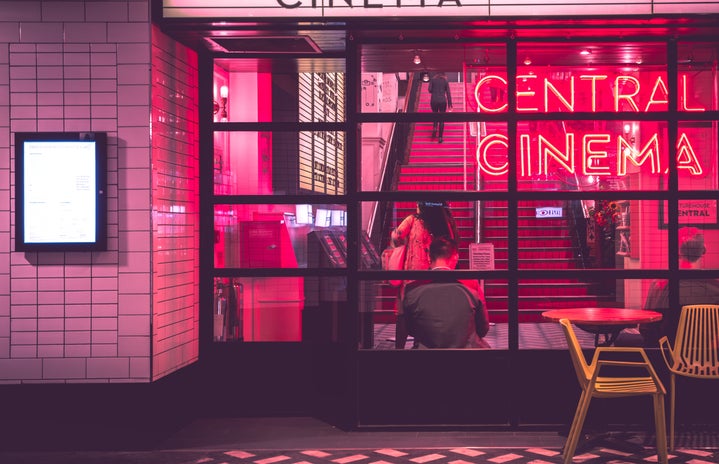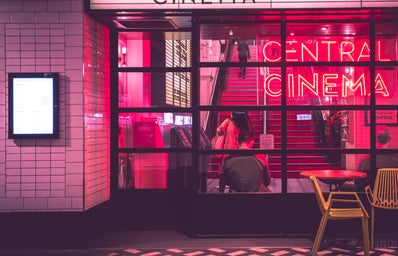In the first film class I took during my senior year of high school, one of the activities assigned to us was listing actors, directors, and other people involved in the film industry. First, we had to name five white male figures in Hollywood––which I completed in a matter of seconds. From Leonardo DiCaprio to Steven Spielberg, I had endless options. But the lists quickly narrowed down to African American, Asian, and Mexican men in Hollywood. Feeling pretty guilty, my lists began to narrow down to bullets of threes and fours rather than fives. My teacher then had us name the women in Hollywood ––again white, African American, Asian, and Mexican and once again, my lists became shorter.
Of course, my teacher was trying to show how much focus Hollywood puts on white males and how little diversity we really see in the industry. But this quick assignment had me thinking: is it Hollywood’s fault for not recognizing diversity in the film industry, or is it my own ignorance of the diversity within cinema? As I continue to study film, I have realized that the answer is both.
I believe in general that diversity in Hollywood is something important to recognize, but what particularly concerns me and what I want this piece to focus on is the representation of women in film. This is not only a problem for future female filmmakers, but for moviegoers who primarily watch cinema through the white male perspective.
Picture Credit: Cinephilia and Beyond
Though in 2017, The Motion Picture Association of American reported that women account for 52% of moviegoers, in the top grossing films of the year The Center for the Study of Women in Television and Film stated that 8% of women were directors, 10% writers, 2% cinematographers, 14% editors, and 24% producers. Only five women have ever been nominated for the Academy Award for Best Director, with only one of those five, Kathryn Bigelow, winning. This bias is not exclusive to just women behind the camera, but those in front of it as well with only 29% of female protagonists. Unfortunately, for the past decade, these statistics have not continued on an upward trend.
In the past year, women have proved their ability when it comes to making films. Patty Jenkins’ Wonder Woman became the highest grossing superhero origin movie of all time, Cinematographer Rachel Morrison earned the first female Academy Award nomination in Best Cinematography for the movie Mudbound, and Greta Gerwig gained much attention for her directorial debut film Lady Bird and acquired the fifth female Academy Award nomination for Best Director. While these movies are achieving firsts for women in film, they most importantly are having a significant impact on audiences.
Angelica Guarino, a senior studying Film and TV at Boston University, said how Gerwig’s Lady Bird seemed so relevant to her life. “Everything seemed to line up with things I had experienced or was currently experiencing” she explained. “Yes, I’ve felt this way from movies before, but with Lady Bird, it was so amplified. Yes, there have been a ton of coming-of-age movies starring teen girls, but this one felt so much more real because it came from a woman who lived it.”
Picture Credit: Rolling Stone
Quynh-Chi Nguyen, a sophomore at the University of Massachusetts, Amherst, described how watching Jenkins’ Wonder Woman was an “awakening” for her. “I’ve been watching superhero movies my whole life and never have I seen one that made me so proud.” She explained, “The kind of care and empathy that Wonder Woman portrayed was something only a female director could’ve translated to the audience so well. Do you think Joss Whedon could come even close to what Patty Jenkins did if he had directed the movie?” Nguyen also described her anger with the lack of female representation in film, “This is how men get to feel every time they watch a movie and I’ve only ever experienced this once or twice before.”
Director Kathryn Bigelow has spoken out on the issue herself after the ACLU began to address the discrimination of female directors, “Hollywood is supposedly a community of forward-thinking and progressive people yet this horrific situation for women directors persists” Bigelow explained to Time adding that “Gender neutral hiring is essential.”
This year, Hollywood explored women’s stories a little further off the screen with Time’s Up, a movement against sexual assault in response to the Harvey Weinstein allegations. While these narratives are finally beginning to come to light, it only further shows how women’s experiences differ from men’s and need to be told in their own perspectives.
Picture Credit: The Inquisitr
Yet the lack of female representation of in film is not the only issue Hollywood women face. The gender wage gap also continues to play a large role in entertainment inequalities. In Forbes’s 2017 highest paid lists, Mark Wahlberg capped the actor list making 68 million while Emma Stone, who had won the Oscar that year, topped the actress list with 26 million.
So maybe it is clear that there are unequal opportunities for women in Hollywood, but as people who are not apart of the industry, how do we have a say in what changes? Fortunately, there are ways to show your support for women in the film industry, starting by talking about these inequalities. It’s also important to support female directors, producers, and other industry workers by buying tickets to their latest movies. Though known for a reason, female directors extend beyond Bigelow, Gerwig, and Coppola. Watch out for both the studio films and independent films with female directors that will be released. This support is necessary, but what is perhaps more valuable is watching the true difference and empowerment in female outlook.
Since the early age of Hollywood, movies have been made through a white male lens––and films should not be an exclusive experience. Whether these female directors create reality or fantasy, science-fiction or history, drama or comedy, a woman’s perspective should be made through a woman’s eyes.
Want to keep up with HCBU? Make sure to like us on Facebook, follow us on Instagram, check out our Pinterest board, and read our latest Tweets!



